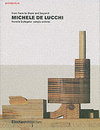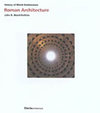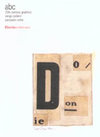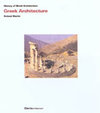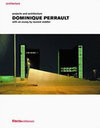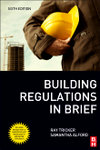
-
 Anglický jazyk
Anglický jazyk
Cement, Concrete And Bricks
Autor: Alfred B. Searle
PREFACE: OF all building materials which are not found in a state of nature, the most important are, unquestionably, cement, concrete and bricks. The first of these includes a large variety of materials used to bind together particles of stone, sand, and... Viac o knihe
Na objednávku
50.58 €
bežná cena: 56.20 €
O knihe
PREFACE: OF all building materials which are not found in a state of nature, the most important are, unquestionably, cement, concrete and bricks. The first of these includes a large variety of materials used to bind together particles of stone, sand, and other naturally occurring materials the second used in a broad sense includes all kinds of artificial stones made by cementing various materials together without the aid of heat, and the last bricks includes an even larger number of different articles, distinguished by their general form and by the fact that heat has been used to render their shape permanent. It is a mistake to suppose that all bricks are made of clay at the present time they are made from a number of other materials, such as destructor refuse, sand, slag, etc. Indeed, the composition of some bricks so closely resembles that of concrete as to render it necessary to include them as one of the forms taken by this material. It is important, in considering the chemical and other properties of these three typical building materials, to observe the genetic relationships between them. To neglect this is to enter upon a course of study which is exceptionally difficult, and to follow a pathway of thought along which many men have lost their way. So long as cement and concrete are considered as having nothing in common with bricks, and vice to understand the constitution versa, it is almost impossible of any of these materials. Separately, they lead to no important conclusions, but considered together they throw a light on each others characteristics which is as important as it is unexpected. Until a few years ago the brick industry of this country had no men of sufficient scientific training to study adequately the constitution of the materials used or the chemical and physical changes which occur during manufacture. Consequently, the industry was largely workedby rule of thumb, and men had often to pay very dearly for their experience, simply because there was no source from which to obtain guidance on the complex technical problems associated with their work. The manufacturers of cement have been more fortunate, for they realised at an early stage that success or failure depended largely on maintaining a mixture of constant chemical composition they found that tests were necessary at so many stages in the manufacture that the employment of several chemists became essential. With this scientific assistance the chemical and physical laws affecting the production of cement were studied with very gratifying results, and though much remains to be done, theimportance of a knowledge of chemistry in the manufacture of cement has been fully established. Concrete is in an intermediate stage so far as the application of science to its production is concerned...
- Vydavateľstvo: Crawford Press
- Rok vydania: 2008
- Formát: Hardback
- Rozmer: 222 x 145 mm
- Jazyk: Anglický jazyk
- ISBN: 9781443732024




